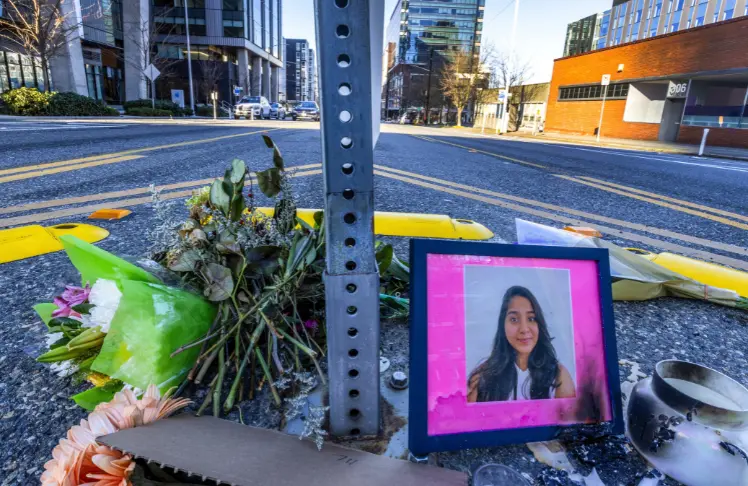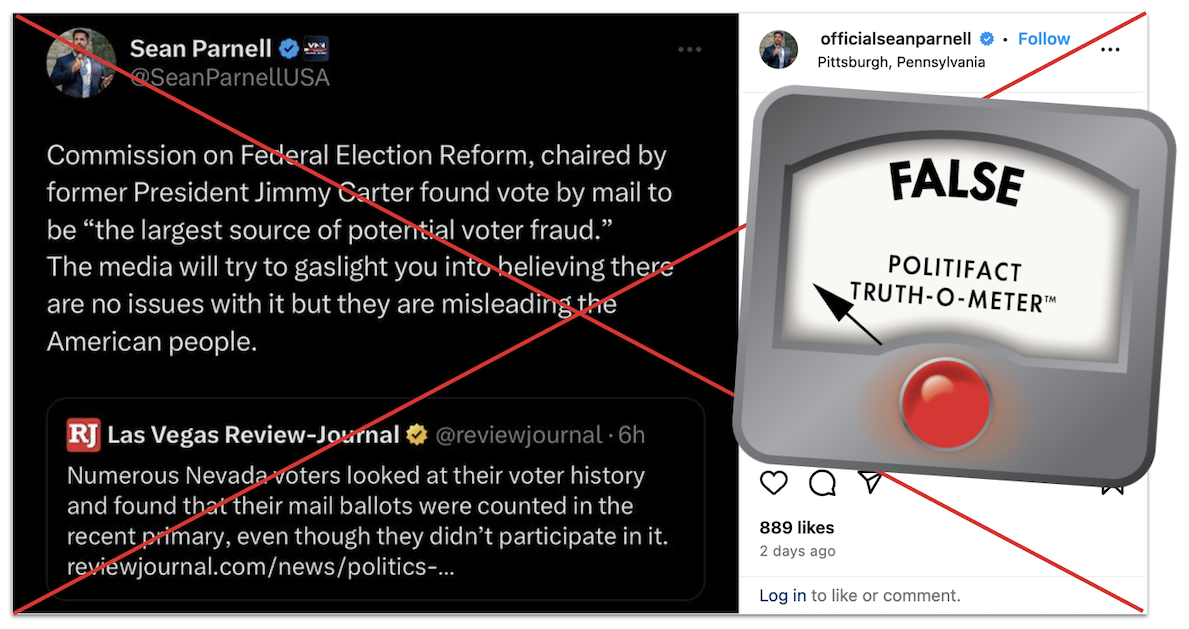Imagine: You try to sign into Facebook, and the platform asks for government identification before you can proceed. Then YouTube does the same. And TikTok, and X and Reddit, and the list goes on.
Social media posts claim that a Senate bill, the Kids Online Safety Act, would mandate that social media platforms, websites and apps use this method to verify users’ ages.
“Hey (by the way) everyone should be panicking about this,” read a Feb. 16 X post with 1.8 million views as of Feb. 23. “This bill would require everyone to upload your government ID in order to use most sites on the internet. You can forget about your silly lil stan/fandom accounts if this passes.”
Another X post with 1.7 million views as of Feb. 23 focused on the potential implications for online activism.
“If you care about Palestine you NEED to pay attention to KOSA, I’m so serious,” the Feb. 17 post read. “It’s a mass censorship bill & forces everyone to upload their govt ID online to access anything. Say goodbye to being anonymous online. Say goodbye to organizing online. #KOSA”
Social media users have made similar claims about the bill for months.
The claims ignore critical facts.
The Senate bill, S1409, does not require social media platforms, websites or apps to use government identification to verify people’s identities.
If the bill becomes law, though, some experts said companies could possibly use age verification methods, which could include government-issued identification.
What does the Kids Online Safety Act require?
The Kids Online Safety Act, sometimes called KOSA, would require social media platforms, websites and apps to take steps to reduce and mitigate harms such as sexual exploitation and online bullying that minors might experience online. Sixty-two senators from both parties have co-sponsored the bill, meaning it will likely head to the House, where its fate is uncertain. The bill’s introduction in 2022 followed months of congressional investigation into how technology and social media companies manage children’s safety.
The bill would cover social media platforms, video games, messaging apps and video streaming services that connect to the internet and are used — or are “reasonably likely to be used” — by minors. It would require that companies:
-
Provide safeguards that limit other users’ ability to communicate with minors or access minors’ personal data.
-
Provide parental tools to supervise minors’ use and to provide minors with default settings with the most restrictive privacy and security safeguards.
-
Provide features that would let minors more easily delete their accounts and the data linked to those accounts.
-
Provide features that would let minors set time limits for use.
One section of the bill requires a federal study of “methods and options for developing systems to verify age at the device or operating system level.”

Facebook’s Messenger Kids app is displayed on an iPhone in New York, Feb. 16, 2018. (AP)
We contacted Sen. Marsha Blackburn, R-Tenn., and Sen. Richard Blumenthal, D-Conn., the bill’s lead sponsors, and a Blumenthal spokesperson pointed us to information about the bill on Blumenthal’s website.
The website answers questions about whether the bill would require age verification or force users to provide their driver’s license or government ID to create social media accounts.
The answers to these questions is no, both on Blumenthal’s website and a similar section of Blackburn’s website. The bill “does not impose age verification requirements or require platforms to collect more data about users (government IDs or otherwise). In fact, the bill states explicitly that it does not require age gating, age verification, or the collection of additional data from users,” according to both Blumenthal’s and Blackburn’s sites.
We verified that the bill says nothing in the legislation should be interpreted as requiring companies to:
-
Collect “any personal data with respect to the age of users that a covered platform is not already collecting in the normal course of business.”
-
“Implement an age gating or age verification functionality.”
Experts also told PolitiFact that the bill does not require websites or social media platforms to verify government IDs.
Experts don’t rule out age verification if left to the companies
The bill would require companies to treat adults and minors differently for features and functions such as default safety settings and who can contact them through their accounts.
The bill “does not have an age verification requirement, but most of the bill would only apply to users who are known to be 16 or younger,” said John Perrino, a Stanford Internet Observatory policy analyst. He said that if companies must determine who is under a certain age, it raises “legitimate privacy concerns,” but added that platforms can use other methods that do not include verifying government IDs to determine users’ ages. Those include self-reporting and face scanning tools, some of which are already in use.
Caitlin Chin-Rothmann, a fellow at the Center for Strategic and International Studies, a Washington, D.C., think tank that receives some funding from tech platforms, said, “It is possible that companies could extend some KOSA provisions to all users regardless of their perceived age.” For example, platforms could mitigate “content that glorifies eating disorders, suicidal behaviors or substance abuse” for people of all ages, Chinn-Rothmann said.
To offer parental controls, as the bill requires, companies would have to identify both parents and minors, and “the only way to authenticate that relationship is through identity verification for both users,” said Shoshana Weissmann, digital director and Fellow at R Street Institute, a think tank that receives some funding from Google.
On their websites, Blumenthal and Blackburn wrote that the bill says online platforms must provide the safety and privacy protections “if an online platform already knows that a user is underage.”
“Online platforms often already request a date of birth from new users, either for advertising and profiling the user, or for compliance with Children’s Online Privacy Protection Act,” the sites read. “Online platforms also frequently collect or purchase substantial amounts of other data to understand more about their users. But if an online platform truly doesn’t know the age of the user, then it does not face any obligation to provide protections or safeguards under the bill or to collect more data in order to determine the user’s age.”
Haley Hinkle, policy counsel at Fairplay, a nonprofit organization that opposes child-targeted marketing and supports the Kids Online Safety Act, said some of the bill’s protections apply only when the platform knows users are minors. The bill defines “knows” as having “actual knowledge or knowledge fairly implied on the basis of objective circumstances.”
“If a platform has used technology to determine a user’s age for purposes of delivering advertisements or ensuring advertiser brand safety, it must also apply that determination to KOSA protections,” Hinkle said.
Weissmann said the data on who is a minor “is nowhere near” cut and dried, and the issue likely would result in litigation. Weissman and R Street Institute have opposed the bill.
“I’m sure I could be flagged as a minor on some platforms where I search for SpongeBob clips and memes,” she said. “Meanwhile, a minor might be searching for information about cancer or even jobs that might make them appear more like an adult.”
To avoid lawsuits and liability, platforms covered in the law would likely require all users to verify their ages, Weissmann said.
Chin-Rothmann said because there are few “robust technological methods” for accurate age verification that also protect privacy, verifying government IDs might be the “most straightforward and low-cost” age verification method for platforms to use.
Our ruling
An X user says the Kids Online Safety Act “would require everyone to upload” government identification “in order to use most sites on the internet.”
The Senate bill does not include that requirement or say social media platforms, applications or websites must collect more user information than they already do.
Experts did not rule out that companies could turn to methods such as requiring government identification because of the law, but that is speculation.
We rate this claim False.
RELATED: US frets about TikTok feeding data to China; banning app won’t end the threat, experts say









